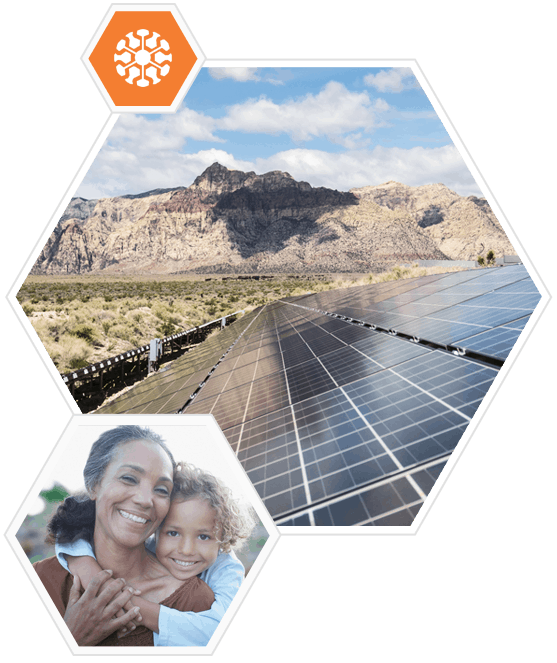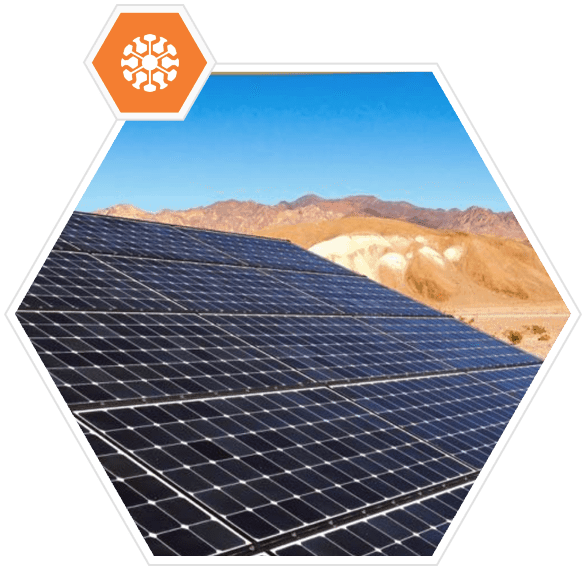
– Chief Seattle
A Solar Vision for Change
Change is afoot. The western world is beginning to awakening to a truth long known by indigenous peoples: we are all interconnected with each other, with the land, with the wider Earth and its creatures, and with the greater universe.
Solar energy is a way to power this paradigm shift. The sun is a symbol of life and vitality; of warmth, light, and transcendence to a higher purpose, fitting for these changing times.
The sun has always generously provided us with energy that has allowed us to grow crops. With solar, we are merely capturing this energy and distributing it to power our homes and our lives with the intention of displacing our detrimental reliance on fossil fuels.
The shift towards renewable energy such as solar power represents the opening of a new chapter in the history of humanity, and a beacon of hope for those of us embracing a more conscious and conscientious way of living.
The SUN Mission
Americans as stewards of the land.
Wide-scale investment in solar energy, in conjunction with a cooperative, native-owned partnership model represents an ideal vehicle to achieve this symbiotic mission.
Tribes who partner with SUN become co-owner members of a solar energy network that is dedicated to the success of all partners. The model is designed to ensure the process of constructing and managing a solar power plant is as easy as possible, with our experts advocating on your behalf to take care of:
- Financing
- Legal matters
- Construction
- Planning
- Distribution
- Sales
- Management
Total transparency is guaranteed. Tribal partners are provided with full disclosure of all financial and business records.

The global shift toward community-led energy infrastructure is accelerating.

A recent study from the University of Waterloo discovered that indigenous communities around the world are rejecting mainstream energy projects in favor of community-led sustainable energy initiatives. The study explained that this shift has lead to improvements in social and economic development, as well as increasing capacity for self-governance.

“Many indigenous communities decided to take back control of their own energy production and not rely so heavily on government utilities.”

The construction of renewable energy plants has allowed some indigenous peoples to develop at a pace which they choose, execute their vision of sustainability and gain experience in building and managing infrastructure. However, for many tribes, entry into renewable power projects such as solar has been inhibited by costs and complexity. For tribes in the Southwestern United States, SUN’s unique partnership model offers a way to overcome these challenges.
Progress with Partnership
SUN believes in success that is born of partnership. Our model fosters partnership between native tribes who have joined the movement towards a sustainable energy future. Tribal partners are co-owners in SUN and cooperate in a spirit of synergism and mutual aid.
This spirit of inter-tribal alliance supports collective bargaining,
promotes stability and increases revenue to the benefit of all tribal co-owners by providing greater leverage when selling electricity. Revenue is shared by all tribal partners, and calculated based on the kilowatts generated by each partner’s plant.
The path to wholeness begins with solidarity. SUN subscribes to the truth that the success of one rests on the success of all.

A Solar Vision for Change
The land is sacred. Land provides sustenance, nourishment, and shelter. It holds the bodies of our ancestors; it provides context for our stories and ground for our communities to grow. Land links us to the spiritual world through sites of special meaning and ritual.
The land is not ours to own or possess but to care for, for coming generations. SUN recognizes
and honors this understanding of land.